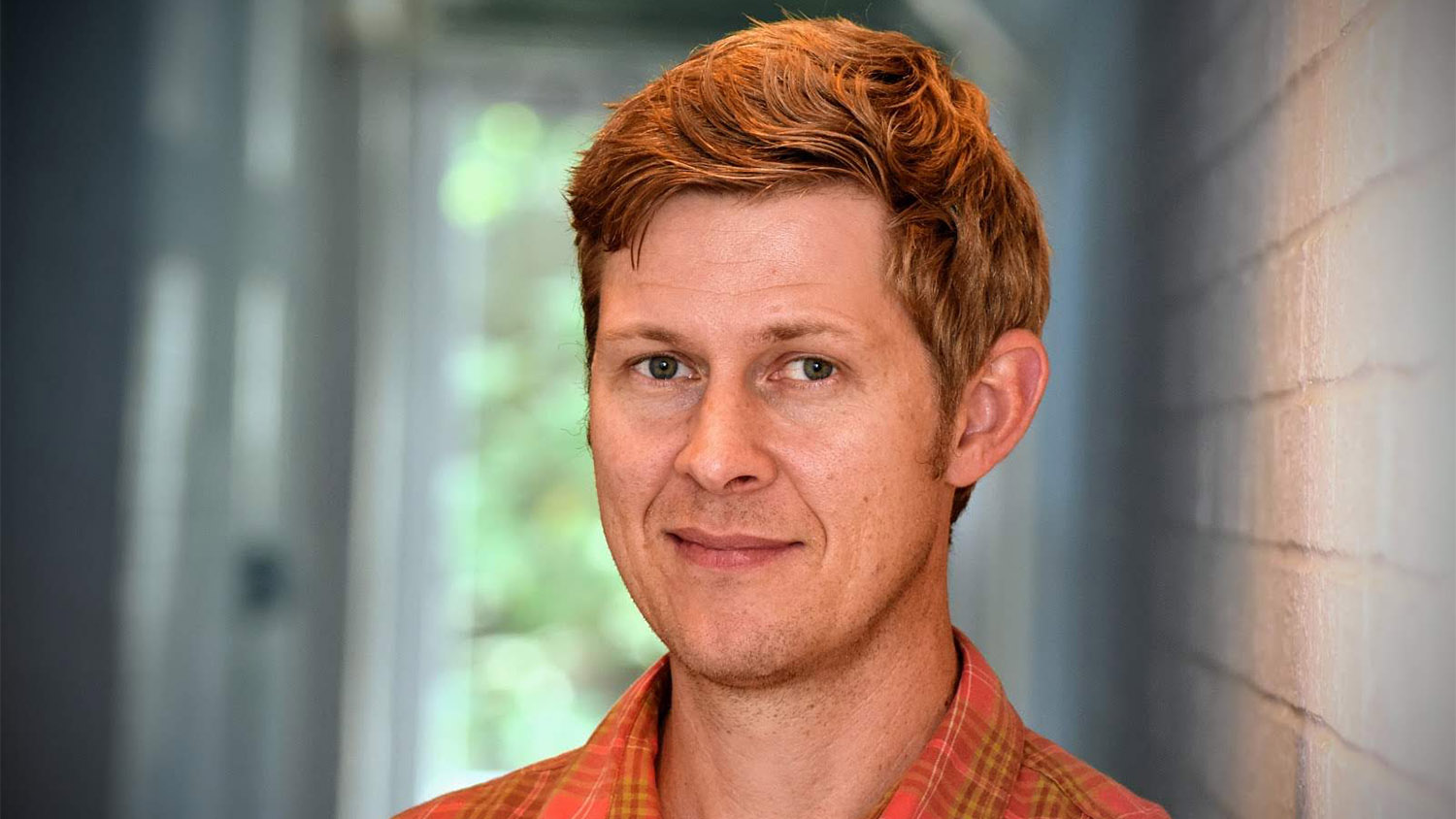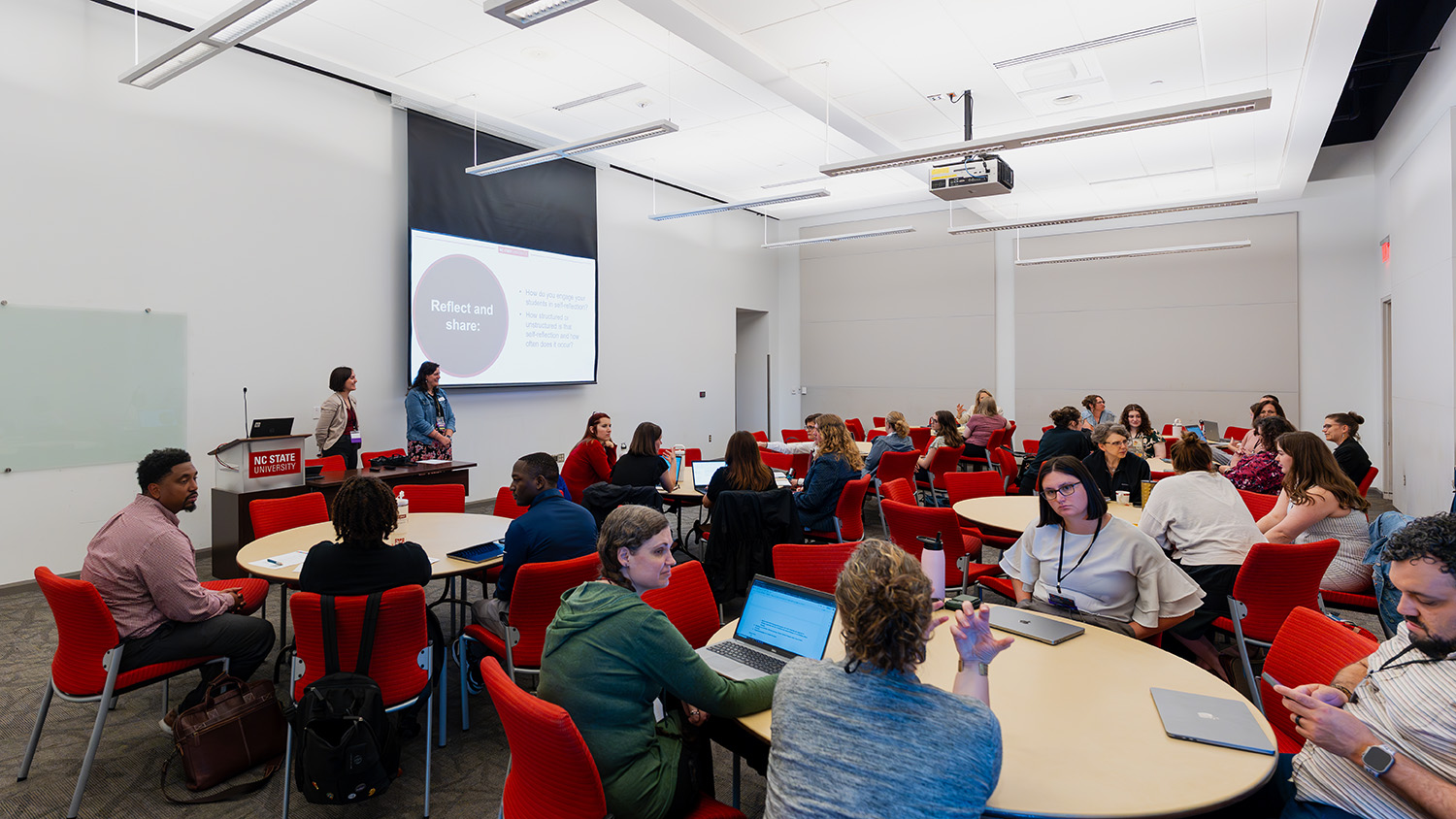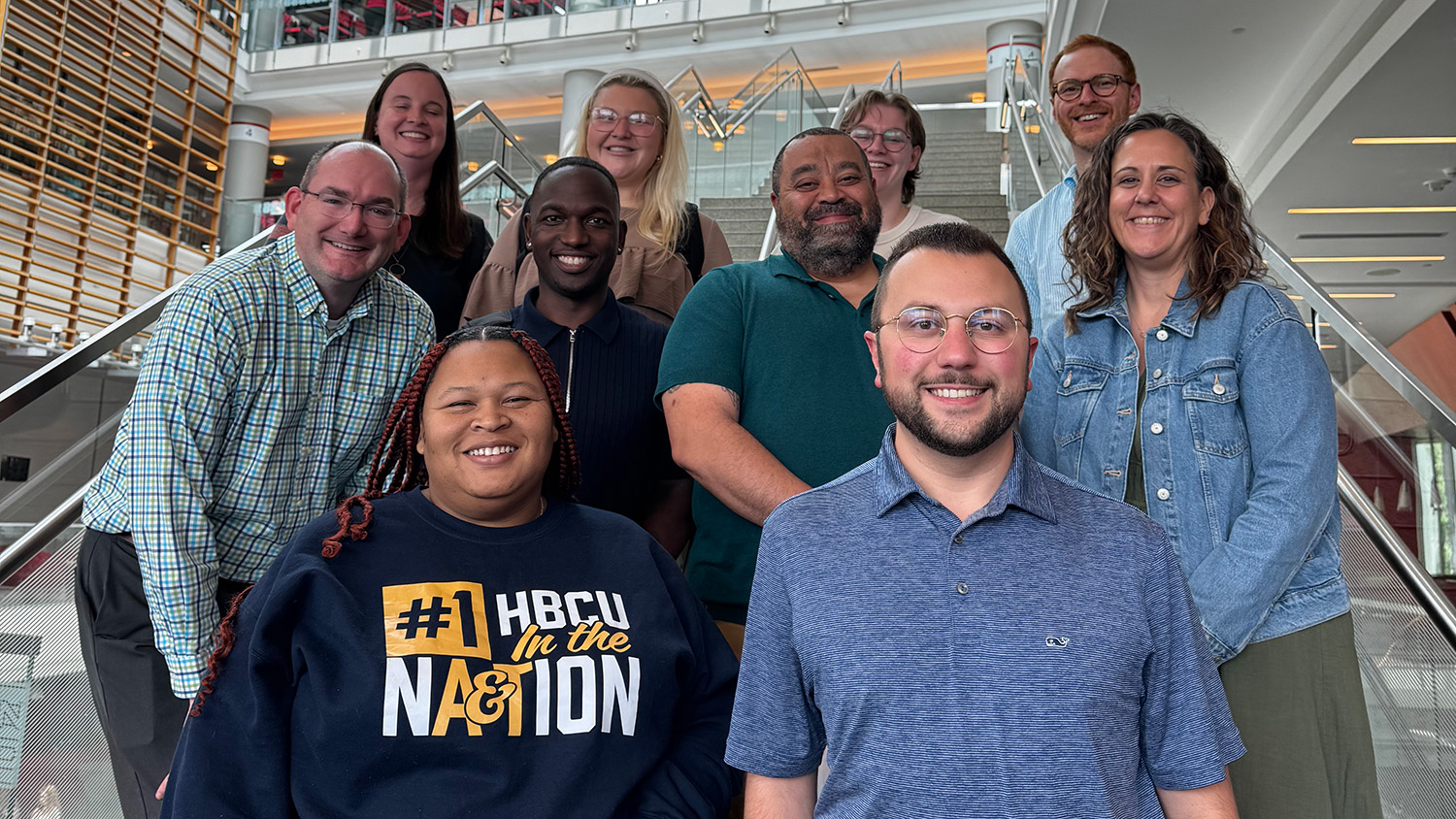Professor Paul Fyfe Brings a Humanistic Approach to Data
Professor Paul Fyfe discusses his course, Data and the Human, for students in the University Honors and Scholars Programs.

By Maren Carter
Paul Fyfe, a faculty member in the NC State English department since 2013, teaches students in the University Honors and Scholars Programs about how humans interact with digital technology in his honors seminar, HON 202: Data and the Human. For the course, professor Fyfe wanted to bring a more “critical, humanistic approach to data,” and allow “[the] course to open these dimensions of living in a data-saturated culture.”
In Data and the Human, course content is segmented into three modules:
- Data and surveillance, including what affects students themselves;
- how to work with data, with help from NC State University Libraries; and
- artificial intelligence, including its popular representations and the biases of machine learning.
Fyfe says that although he teaches a lot more literature in his other courses, many of those courses also consider the relations of literature, technology, and media. He wants his students to develop critical data literacy and be able to respond to how data impacts their own lives as well as the world.
“There is no such thing as ‘raw data.’ Nor are data, algorithms, or digital technology ever ethically or socially neutral,” Fyfe said.
Fyfe attended Wake Forest University and the University of Virginia, where he received his Ph.D. in English language and literature, focusing on 19th Century British literature. He says that, although his area of expertise may seem a far cry from today’s digital world, many have argued that the modern concept of information emerged during the 19th Century.
“There were massive changes to [Victorian Britain’s] media landscape: steam printing, railway distribution, photography, telegraphs, telephones, radio, and cinema,” Fyfe said. “All this seemed, at the time, as revolutionary as ‘new media’ seems to us today.”
Currently, Fyfe is researching for his book Digital Victorians, supported by a 2018-2019 ACLS Burkhardt Fellowship at the National Humanities Center, which finds the origins for many of our digital practices and sensibilities in these 19th-Century contexts. Fyfe jokes that he’s leading a double life as a scholar of new and old media.
“Learning about the past can help us interpret the present — as well as vice versa,” Fyfe said.
Students in the Honors and Scholars Programs can enroll in professor Fyfe’s seminar, Data and the Human, in the fall or spring semesters.
- Categories:


